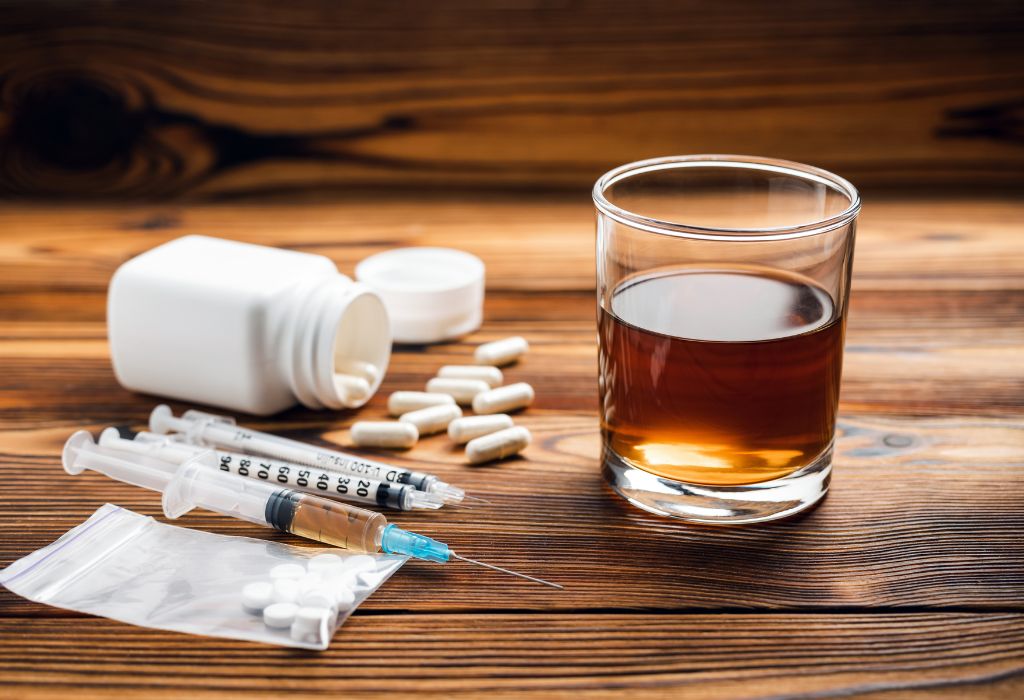Prednisone is a widely prescribed corticosteroid used to treat various conditions, including asthma, arthritis, and autoimmune disorders. While it is effective in managing inflammation and immune responses, prednisone comes with a range of potential side effects. One critical consideration for patients taking this medication is the interaction between prednisone and alcohol. Alcohol, a common social lubricant, can complicate the side effects and efficacy of many medications, and prednisone is no exception. Combining these two can lead to heightened side effects, compromised immune function, and increased risk of gastrointestinal issues and liver damage.
Understanding the risks and side effects of mixing these substances is essential for anyone undergoing prednisone treatment to ensure safe and effective management of their health. This blog will delve into the specific risks associated with combining prednisone and alcohol, providing a comprehensive guide for patients navigating their treatment regimen.
What is Prednisone?
Prednisone is a synthetic glucocorticoid, a type of steroid hormone that reduces inflammation and suppresses the immune response. It is used to treat conditions like:
- Asthma and other respiratory conditions
- Rheumatoid arthritis and other inflammatory diseases
- Lupus and other autoimmune disorders
- Allergic reactions
- Certain types of cancer
The dosage and duration of prednisone treatment vary widely depending on the condition being treated and the patient’s response to the medication.
How Alcohol Affects the Body
Alcohol is a central nervous system depressant that can affect almost every organ in the body. Its effects range from mild euphoria and relaxation to severe impairment and health risks, especially when consumed in large quantities. Chronic alcohol use can lead to liver damage, cardiovascular problems, and a weakened immune system, among other issues.
The Interaction Between Prednisone and Alcohol
Combining prednisone and alcohol can be problematic due to the potential for compounded side effects and the exacerbation of existing health issues. Here are several key reasons why mixing these substances should be approached with caution:
-
Increased Risk of Gastrointestinal Problems
Both alcohol and prednisone can irritate the gastrointestinal (GI) tract. Prednisone may result in stomach ulcers, bleeding, and perforations, whereas alcohol can induce gastritis and exacerbate ulcer symptoms. When combined, they heighten the risk of severe GI complications. Although patients on prednisone are typically instructed to take the medication with food to lessen these risks, the addition of alcohol can still pose significant issues.
-
Compromised Immune System
Prednisone lowers the immune system, vital for managing autoimmune diseases, and heightens susceptibility to infections. Similarly, alcohol dampens the immune response, hindering the body’s ability to combat infections. When used together, the immune-suppressing impacts can markedly elevate infection risks, extend recovery periods, and diminish vaccine.
-
Impact on Blood Sugar Levels
Prednisone may elevate blood sugar levels, potentially endangering individuals with diabetes or predisposition to the condition. Alcohol consumption can also trigger blood sugar fluctuations, possibly resulting in hypoglycemia or hyperglycemia, contingent on intake and individual metabolism. Combining alcohol with prednisone can challenge patients in maintaining stable blood sugar levels, raising concerns for complications.
-
Liver Damage
These substances are metabolized by the liver. Chronic alcohol consumption can lead to liver damage, such as fatty liver disease, hepatitis, and cirrhosis. Prednisone can also stress the liver, especially with long-term use. Their combined use can exacerbate liver damage, increasing the risk of serious liver conditions.
Risks of Combining Prednisone and Alcohol
-
Enhanced Side Effects:
The side effects of prednisone can be intensified by alcohol consumption. For example, both substances can cause mood swings and changes in behavior. Combining them can exacerbate these psychological effects, leading to severe mood disturbances, anxiety, or depression.
-
Bone Health
Prednisone can cause bone loss and increase the risk of osteoporosis, particularly with long-term use. Alcohol consumption is also associated with decreased bone density and an increased risk of fractures. Together, these substances can significantly compromise bone health, increasing the likelihood of fractures and other skeletal issues.
-
Cardiovascular Risks
Both prednisone and alcohol can raise blood pressure. Prednisone can cause fluid retention and increase the risk of cardiovascular diseases. Alcohol, especially in large quantities, can also elevate blood pressure and contribute to heart disease. The combination of these two can place additional strain on the cardiovascular system, increasing the risk of hypertension and heart-related problems.
Side Effects of Prednisone
Prednisone, while effective, comes with a range of potential side effects, which can vary depending on the dosage and duration of use. Common side effects include:
- Weight gain: The use of prednisone can result in an increase in appetite and the retention of fluids.
- Mood swings: Patients may experience irritability, anxiety, or depression.
- High blood pressure: Persistent consumption can result in hypertension.
- Elevated blood sugar levels: Prednisone can cause blood sugar spikes, increasing the risk of diabetes.
- Adrenal insufficiency: Long-term use can suppress natural cortisol production, leading to adrenal insufficiency.
Side Effects of Alcohol
Alcohol consumption, particularly in excess, can lead to a variety of side effects and long-term health issues:
- Short-term side effects: Intoxication, impaired judgment, dehydration, and hangovers.
- Long-term health risks: Chronic liver disease, cardiovascular problems, neurological damage, addiction, and increased cancer risk.
Guidance for Patients
The safest approach is to avoid alcohol altogether while taking prednisone. Given the significant risks associated with combining prednisone and alcohol, patients must take precautions:
-
Limit alcohol consumption:
If avoiding alcohol is not feasible, limit consumption to occasional, moderate amounts and consult your healthcare provider for personalized advice.
-
Stay hydrated:
Alcohol dehydrates you, and prednisone can also contribute to fluid loss. Drink an abundance of water throughout the day, particularly if you consume alcohol.
-
Maintain Healthy Lifestyle:
Support your overall health with a balanced diet, regular exercise, and adequate sleep to help mitigate some of the side effects of prednisone.
-
Monitor your health:
Pay close watch to how you feel after consuming alcohol. If you experience any worsening of side effects, discontinue alcohol consumption and consult your doctor.
Conclusion
In conclusion, the interaction between prednisone and alcohol poses significant risks and potential complications for individuals undergoing treatment with this corticosteroid. Understanding these risks and side effects is paramount for patients to make informed decisions about their health and well-being. From gastrointestinal issues to compromised immune function, the combined use of these substances can exacerbate existing conditions and lead to severe consequences. It is essential for healthcare providers to educate patients about the potential dangers of mixing these substances and to provide clear guidance on alcohol consumption during prednisone treatment. Patients must also take responsibility for their health by consulting their healthcare provider before consuming alcohol and monitoring their symptoms closely.
If you have any concerns or questions about the interaction of such substances, don’t hesitate to reach out to our healthcare provider at BHouses for personalized advice. By prioritizing safety and awareness, individuals can navigate their treatment regimen effectively and minimize the risks associated with prednisone and alcohol interaction, ultimately promoting better health outcomes and quality of life.
FAQs
Que: Why is prednisone so hard on the body?
Ans: The primary strength of prednisone can also be its primary vulnerability. While prednisone’s efficacy lies in its capacity to suppress the immune system and alleviate symptoms, this same mechanism can elevate susceptibility to illness and infections due to weakened immune defenses.
Que: What is the number one side effect of prednisone?
Ans: Typical short-term effects of prednisone encompass nausea, weight gain, and headaches, while more severe consequences may involve fetal toxicity, allergic responses, and hypertension. The likelihood of experiencing prednisone side effects escalates with higher doses or prolonged treatment durations.
Que: Why do I feel amazing on prednisone?
Ans: Prednisone impacts regions of the brain responsible for overseeing the balance of various neurotransmitters, such as serotonin and dopamine hormones. Some individuals experience a positive side effect of feeling happier while taking prednisone.










